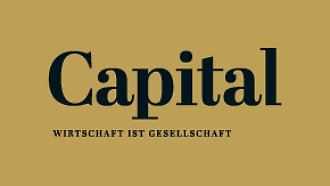Sunday December 12th 2021
Employees become founders
Rocket Internet is the most successful “startup mafia”
By Hannah Schwär
For the first time this year, more than 100 billion dollars will flow into the European start-up scene – of which around twelve billion will go to Germany. This is also due to a unicorn network effect: Successful unicorns give rise to new unicorns.
In the startup scene, it is almost a tradition that statisticians always report new financial records at the end of the year. They are also delivering reliably this year: According to the “State of the European Tech” report by the venture capitalist Atomico and the analysis service Dealroom, more than 100 billion US dollars will have flowed into the European start-up scene for the first time this year, of which about 12 4 billion to Germany. Europe’s founders get bigger rounds than ever before and collect them at ever shorter intervals.
But where does this attraction for international investors come from? One of the reasons can be found in the new report. You can call it the unicorn network effect: where successful startups have emerged, more successful startups will emerge – especially because former employees become founders themselves. They, in turn, have important experience and can get hold of investors’ money more easily. In this regard, the record funding is primarily evidence of the maturity of the tech ecosystem, says Atomico partner Tom Wehmeier. “The people who start a company today are more experienced and qualified than ever before.” Germany in particular is “exceptionally strong in talent recycling,” said the investor.
For this year’s report, Atomico analyzed the résumés of thousands of founders for membership of a “Mafia”. The term describes networks of former employees who have worked for a startup and then successfully set up themselves. The most famous example is the so-called PayPal mafia: its members include Tesla boss Elon Musk, Linkedin boss Reid Hoffmann and Palantir maker Peter Thiel. The analysis results for Germany are exclusively available to Capital.
German unicorns produce more than 1000 founders
By far the most successful mafia is therefore the former startup factory Rocket Internet. Over the years, a total of almost 400 founders have emerged from the workforce. These include, for example, the Gorillas founder Kagan Sümer, who has raised more than 1 billion US dollars for his delivery service in less than two years. Or the founder of the largest German cannabis start-up, the Sanity Group, Finn Age Hansel. In second place after Rocket Internet is the Zalando Mafia with 210 employees who then founded a startup themselves. Interesting: The Zalando founders themselves belong to the sphere of Rocket Internet. The alumni of Delivery Hero, HelloFresh and N26 also showed remarkable start-up activity.
In total, the German unicorns produced more than 1000 founders from their ranks, according to the result of the Atomico analysis. The unicorns thus made a significant contribution to the start-up activity in Germany. “The know-how is passed on from one company generation to the next,” says investor Wehmeier. In this way, the skills that are experienced in building and hypergrowth of a unicorn can be transferred very well to new foundations. The networks that the employees established during this time are just as valuable. The increased trust in the new generation of founders is also evident on the capital market.
According to Atomico data, a third of the world’s early-stage financing rounds (financings up to 5 million US dollars) in 2021 came from European startups – this puts Europe on a par with the founding nation USA. The Atomico analysts anticipate that the current unicorn boom will have an even greater impact on start-up activity in the coming years.
